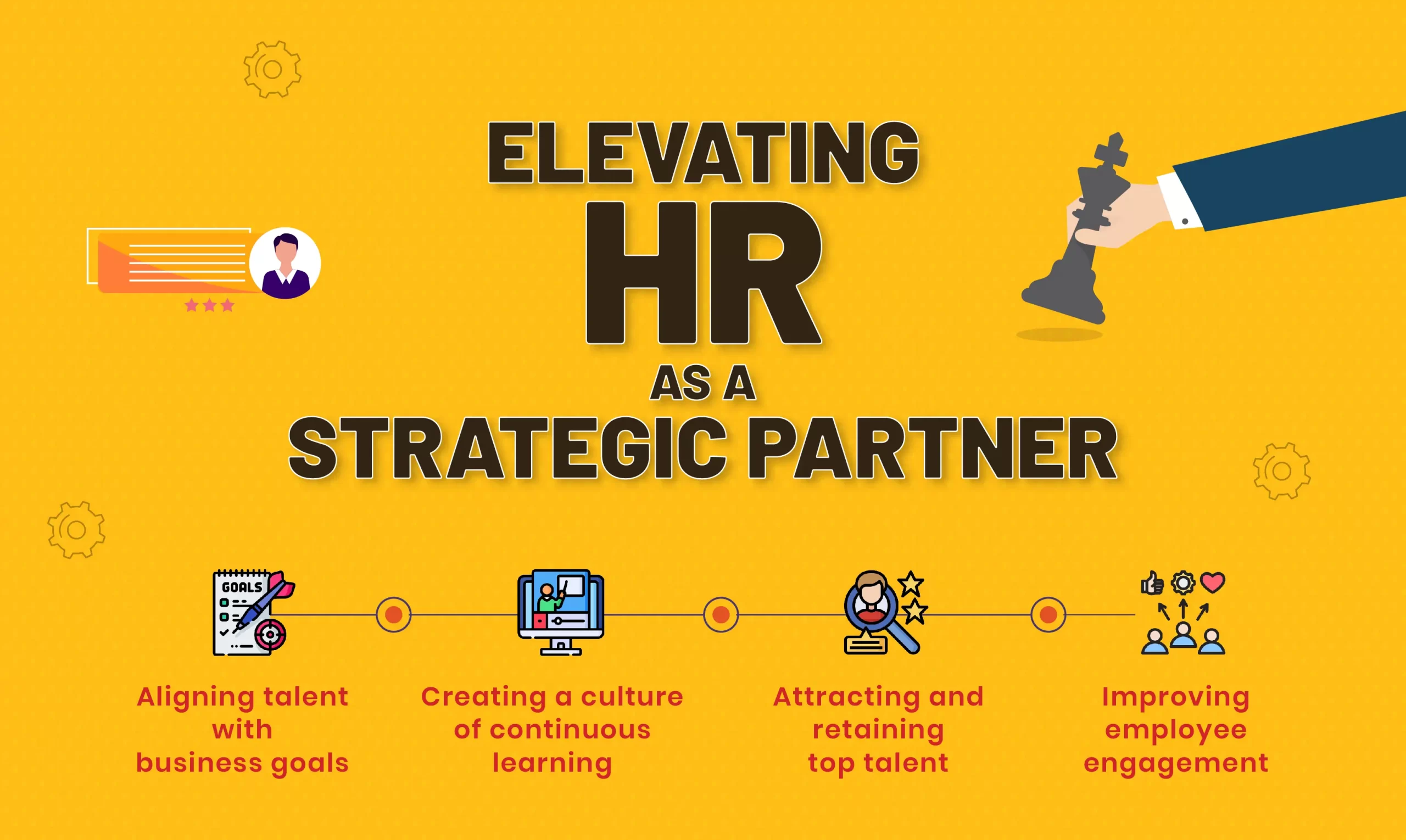

Elevating HR as a strategic partner
In the contemporary business landscape, the function of Human Resources (HR) has transcended conventional roles, now assuming a pivotal position as a strategic partner propelling organizational success. This transformation is crucial for companies aiming to stay competitive and adapt to the ever-changing environment. By leveraging advanced HR technology and reshaping roles, businesses are creating an environment where HR professionals spend more time on strategic initiatives than transactional tasks.
The Shift to Strategic HR
Companies worldwide are adopting cutting-edge HR Information Systems (HRIS) and analytics platforms to enable their HR teams to focus on strategic endeavors. New roles, such as “Director of Talent Strategy,” are emerging to embed strategy into various HR functions. The goal is to transition from viewing HR as a support function to recognizing HR professionals as business leaders with specialized expertise in HR.
What is an HR Strategic Partner?
An HR strategic partner is an HR professional or department dedicated to aligning with business teams, defining goals, identifying necessary actions, setting metrics for success, and aligning talent to achieve those goals. This mindset shift positions HR as more than a support function, empowering HR leaders to contribute significantly to value creation within the business.
Benefits of Strategic HR for Business
Strategic HR offers various benefits, including:
- Aligning Talent with Business Goals: Through activities like talent reviews and succession planning, strategic HR helps leaders align their teams to achieve business objectives.
- Creating a Culture of Continuous Learning: Focusing on learning and development fosters a culture of growth, benefiting both employee careers and the company’s bottom line.
- Attracting and Retaining Top Talent: Developing an attractive Employer Value Proposition (EVP) is crucial in a competitive job market, where retaining talent is as important as attracting it.
- Improving Employee Engagement: A strategic HR function collaborates with leaders to enhance the employee experience, contributing to improved engagement and a positive workplace culture.
Realizing Strategic HR in Practice
Initiatives, such as a strategic talent project co-led by business executives and HR leaders, showcase the power of collaboration. HR leaders, chosen for their business understanding, act as advocates for employees, ensuring that strategic roadmaps align with both business needs and employee aspirations.
How to Become an HR Strategic Partner
- Understand Your Business: Dive deep into the intricacies of your organization’s operations, industry dynamics, and financial trends. Attend strategy meetings, engage in shadowing programs, and build relationships with leaders across different business units.
- Make Time for Strategy: Redefine HR processes and tasks to free up time for strategic initiatives. Prioritize important tasks using frameworks like the Eisenhower Method to ensure strategic work takes precedence.
- Collect and Analyze Data: Embrace a data-driven approach by collecting, analyzing, and leveraging data to inform both HR and business strategies. Key Performance Indicators (KPIs) play a vital role in tracking progress against goals.
- Build Strategic Skills: Develop a new set of capabilities, including business acumen, strategic thinking, data analysis, and relationship building. Utilize a mix of experiential learning, social learning, and formal training to build these skills.
- Change Business Perception of HR: Initiate a change management effort to shift how the business perceives HR. Communicate the transformation, solicit input from stakeholders, and ensure alignment of HR approaches with business needs.
Final Thoughts
Becoming an HR strategic partner is a gradual process that involves a deep understanding of the business, a shift in priorities, data-driven decision-making, skill development, and a change in how HR Outsourcing is perceived by the business. The journey may not be swift, but the rewards in terms of enhanced collaboration, improved organizational outcomes, and a stronger employer brand are well worth the effort.
In conclusion, the evolution of HR into a strategic partner is a testament to its adaptability and value in shaping the success of modern businesses. As HR professionals embrace this transformation, they position themselves not just as contributors to HR functions but as integral partners driving the overall success of the organizations they serve.



